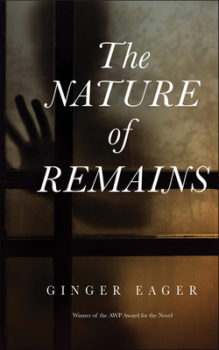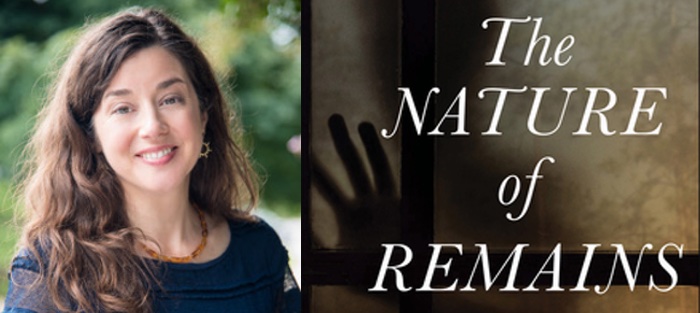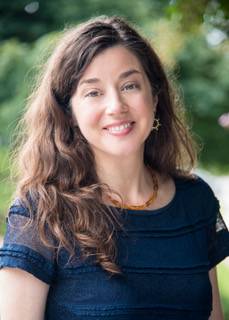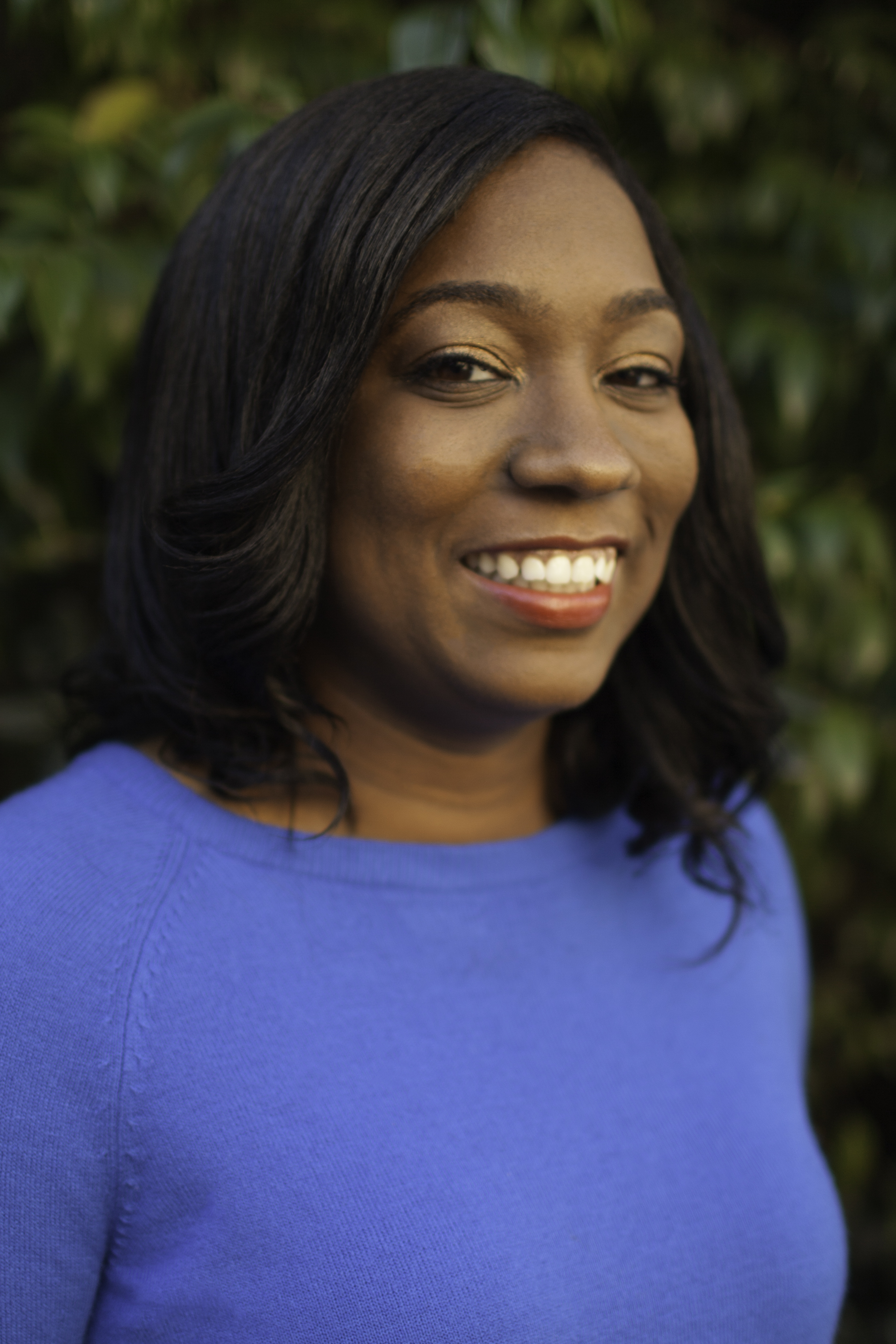Ginger Eager and I met ten years ago as MFA classmates in a workshop at the Bennington Writing Seminars in Vermont. This spring, more than a decade later, our mutual mentor Alice Mattison put us in touch because we were both launching books during the COVID Spring. Speaking to Ginger in Georgia from my home in Washington, D.C., I mentioned a detail (a corduroy jacket with elbow patches) that I still recalled from the story she presented in our Bennington workshop. She laughed (great accent, great laugh) and said the resolution of that story had turned on the mind-sticking detail.
After our first conversation, I couldn’t wait to get my hands on her novel. A local independent bookstore was doing a unique version of COVID-season curbside delivery: using the takeout window of a neighborhood bar as its pick-up point. I began to read as soon as I got The Nature of Remains home, gulped the book down in a weekend. I returned and re-read a second time to savor. Ginger’s expertise with using detail, the authentic detail, the powerful, telling detail had been what I’d remembered from her short story in workshop a decade ago, and what I was happy to rediscover in her AWP Award–winning debut novel The Nature of Remains (New Issues). In Ginger’s work, nothing is gratuitous. Everything contributes to the well-crafted whole.
For this interview, we chatted virtually, online. I sat in my study in Washington, D.C., sipping iced tea with mint, wishing we were visiting together on Ginger’s porch in Georgia. But of course, for fiction writers, geographic distance is easily overcome.
Interview:
Ellen Prentiss Campbell: Could you talk a bit about when you began writing, or returned to writing? You’ve mentioned to me that you were very quiet, about writing, when you did begin. What helped you get past that silence and take your work seriously?
Ginger Eager: Like every writer I know, I’ve always written. But for most of my life, writing was something I did more or less in secret. I didn’t take any creative writing classes while I was getting my undergraduate degree because I knew my work was awful. I didn’t understand that all early drafts are awful. After college, a friend would sometimes admit that she wrote too, and we’d meet to swap stories, but these groups always fizzled out because of work or kids. No matter where you are in the journey, everything gets in the way of writing. You relate to this too, right?
 Absolutely. I didn’t write fiction for almost thirty years after college, had just been at it a few years when we met. One of the gifts of the low-residency model is those ten-day periods away from work and family, to focus on writing, connect with others.
Absolutely. I didn’t write fiction for almost thirty years after college, had just been at it a few years when we met. One of the gifts of the low-residency model is those ten-day periods away from work and family, to focus on writing, connect with others.
Yes, I appreciated the deep dive of the residency model, too. And also like you, I was older when I started to take writing seriously. Sometime in my thirties, I returned to college for my LPN, the entry-level nursing degree. Around the same time, I attended a writers’ festival and heard several debut authors speak. They emboldened me, and I signed up for a writing class at the community college where I was completing my nursing prerequisites. One thing led to another, and eventually I ended up at that workshop table in Bennington where you and I met.
Flyshoals, Georgia, is a long way from Bennington, Vermont. I have never been to Georgia except to change planes in Atlanta, but now I feel like I have. You know Flyshoals from the ground up, beginning the novel with its geological prehistory: the forces that created the amethysts in the red soil of Flyshoals that become so critical to the plot. And beyond geology, you know the history, geography, economics and sociology of this community. What was your process of researching and creating this world?
When I was writing The Nature of Remains, I researched so many things, from how crystals form to how bodies decay in the Georgia Piedmont. One thing would lead to another. Questions about logging practices led me to research the development of the national forest, and then that information became a significant plot point. All of this research went into making Flyshoals.
When I began the novel I’m writing now, I wanted to set it in the swamps of southern Louisiana. So I took a road trip, and I read all sorts of books. My head was stuffed with facts, but then I started to write and everything fell apart. I kept trying to write this scene where a character was walking on a path beside a river, and I couldn’t see it. I didn’t know which flowers would be in bloom or how the path looked—was it sandy or loamy? I didn’t know which insects she’d hear or how the air would smell. I finally reworked the plot so that it could be set in south Georgia. My husband is from that part of the state, so I know it pretty well. I think my research habits aren’t about creating a place so much as grounding myself in a place I already know.
You literally ground your characters in Flyshoals. They seem both in it and of it. Your opening passage describes the soils of the Piedmont region, saying, “Too much has already been asked of them.” True of your characters, as well, and from the outset their tough circumstances get tougher. Doreen Swilley has just learned her boss and longtime lover Bird Marxton is firing her and closing his insurance business at the insistence of his dying wife. Her son Jonathan shows up on her doorstep—his wife Lexie has thrown him out. Over the course of the book, you write from the point of view of Doreen, her boss Bird, Jonathan, and Lexie. For each there is a tension between fate and agency. Could you speak a bit about your process of understanding and developing characters?
I think it’s different for every piece of writing, but with The Nature of Remains, I was working with the question of free will. I wanted to understand why we do the same bad things over and over, even though we know that we’re just going to suffer and make the people we love suffer. We have this profound capacity to be radiant and kind, and it feels really good to be that way, so why is it so hard?
That failure feels central somehow to what it means to be human. We’re born into a human experience that includes a body, a family, a language, a culture. In any single moment, our entire history is coming into play, and the painful or broken moments of our past always threaten to overwhelm the small moments of insight we’ve managed.
So as I wrote this book, I gave a lot of thought to my characters’ histories and whether or not they’d had enough moments of insight to hold back the tide of their past. I tried to understand how they related to their own minds—did they believe the stories they told themselves? Were they even aware of the stories they told themselves?
That’s why I wrote the book in alternating close third person. I tried it in first person with alternating narrators, but the emotional range for each character was too limited. The book didn’t feel true to what I felt like I was discovering about free will, which is basically that we have more feelings than we’re conscious of and feelings we don’t even know we have often drive us more than conscious thought. I couldn’t find a way to work that lack of awareness into a first person telling.
Then I tried a distant third point of view, but that created this godlike presence that sort of hovered over the narrative. Totally not what I wanted. Close third person worked. We’re inside the head of one character at a time, but not so close that that character’s voice is the only one we hear. As you mentioned earlier, the chapters alternate. When you’re rotating through characters in close-third point of view, a character’s unique voice is like a shadow cast on the dominant voice of the narrative. Things like vocabulary and grammatical patterns keep the reader aware of whose point of view they’re in, but those character-specific traits can be set aside just long enough for the dominant narrative voice to slip in a little perspective. I used that relationship between the dominant narrative voice and each character’s shadow voice to communicate things to the reader about a character that the character might not realize about herself.
Ellen, I can’t think of voice without thinking of the short story in your new collection about the advice columnist.
“Your Guardian, Angela”?
Yes, that’s the one. It’s written in first person, and the speaker is an advice columnist in the manner of Emily Post. Her voice is unforgettable. Acerbic and cruel. I found myself wishing for her comeuppance right until the moment it arrived, and then suddenly I saw her as a sad and lonely old woman trapped by the very qualities that once allowed her to be heard. I wanted to call you right up and ask how you pulled it off. Was her voice hard to find? Was it hard to write? Did you know where you were taking the piece when you started writing?
I absolutely heard her voice in my ear the whole time, and for me it was that rare story that was fun to write—she’s bossy, oblivious, incapable of self-reflection. Difficult woman, no way to hold her back from where she insisted on going, you know?
Yes! I had that experience with a couple of characters in The Nature of Remains. Jonathan, Doreen’s son, is lying and manipulative and violent. His actions are just repeatedly awful. But his intentions are good. He keeps trying to do better, but all he does is fail.
He was interesting to write because I could see more goodness in him than he could find in himself. I suppose that writing Jonathan wasn’t unlike being in love with a really difficult person. I still believe he’s capable of decency. I don’t feel the same way about Bird, another character who I couldn’t hold back. Bird’s lying and manipulative too, but he doesn’t have good intentions. What matters most to Bird is how other people think of him. No, that’s not quite right—he doesn’t care what people think of him as long as they recognize his power. What matters most to Bird is his own power.
You take the reader back to Bird’s youth, when he’s the boy called Emmy, stumbling along the very beginning of his path, and evoke such mixed feelings about him for me as your reader.
Oh, good! I have mixed feelings about Bird, too. I wanted to abandon him several times as I wrote, but I couldn’t tell the story without him. That’s one reason for the 1958-59 storyline: I needed help developing compassion for Bird. I didn’t have to feel sorry for him or sympathetic to his plight. I just had to understand how he became the man we meet in 2009. I had to understand that so deeply that I could see how, if I’d undergone exactly the same causes and conditions Bird underwent as a child, I might’ve turned out just like him. So we meet him as a boy during this crucial moment of awakening. We see him stare that awakening in the eye. And then we see him turn away. He chooses not to become a person driven by good intentions and becomes instead a person whose first concern is always his own power. Bird is a Donald Trump–like figure in this tiny Southern town, but he doesn’t see himself that way. He thinks he’s the victim of his family’s wealth and clout.
You do convey deep compassion for your characters, such a deep knowledge of their individual back stories. Through their experience, through their past and present lives, you take on issues of wealth and poverty, advantage and disadvantage, abuse and manipulation, money and work, lack of money and work. For you which came first, issues or characters?
I can’t separate issues and characters. They arise together. I’ve talked about Jonathan and Bird, but the protagonists in the novel are two women, Jonathan’s mother, Doreen, and his wife, Lexie. Doreen and Lexie have both believed for a very long time that emotional labor is a female role, and they’ve taken it on for all these men in their lives. They’ve both spent a lot of time cleaning up men’s literal and metaphorical messes.
Early in the novel, they decide to quit. They’re not women to use words like liberation or sovereignty, but that’s what they’re going for. Their efforts are born of gut instinct, so things get messy and fierce and problematic. Sometimes they work with one another, and sometimes they’re at odds. They don’t have a lot of resources. It’s 2009, and the economy is in a recession. They live in a culture that views women like them as expendable. They’re both scrambling to fill in the gaps. Doreen needs a high school degree and a license to sell insurance. Lexie needs to finish her LPN at the community college. They both worry about money. There are moments in the narrative when Doreen and Lexie really need a break from each other, but they can’t take one because they tag-team childcare for Lexie’s kids. The children drive so many of their decisions. Ultimately, they will each betray Jonathan so that his children can have better opportunities.
Your characters often do not know what drives them. How about you, as author and creator—what’s the experience like for you? Do you always know the character’s unconscious drives, intentionally set action into place? Are you ever surprised?
It sounds as if I’m very in control the whole time, doesn’t it? I’m not. I worked on this book off and on for about seven years. When I started, I had only the vaguest notion of who these characters were. We had to form a relationship. I would sit down at the computer thinking I knew how the work would go, and then someone would do something unexpected. They might delight me or disgust me or infuriate me. But if the character was going to remain in the narrative—if I wasn’t going to abandon them, excise them through revision—then I had to figure out why they’d done this unexpected thing. I had to keep showing up and listening.
“Showing up and listening”—that gives me such a clear image of you doing the work, writing. I imagine it’s also true of you at work as a teacher of the liberal arts. And you really give work the weight it deserves in your characters’ lives, too. Like Doreen and Lexie, both so determined, going after the education, the credentials required for the work they need and want. Their circumstances are dire, very different from ours when we redirected—you were training to become a nurse. But you made the choice to become a writer. What helps you sustain the effort required to balance your writing, teaching liberal arts at the college level, your life?
If balance between work, life, and writing is possible, I haven’t figured out how to do it. A friend once advised me to be like one of those toys from the 1980s, the little plastic people with rounded bottoms called Weeble Woobles. Remember them? “Weebles wooble but they don’t fall down!” I keep one on my desk next to my computer.
I would probably quit writing if it didn’t function as a spiritual practice for me. It demands I do things like develop compassion for characters I dislike. The gradual unlocking of the narrative feels like spiritual work, too. But getting that first draft down on the page is nothing but drudgery. Then there are all of the lovely days and outings with friends that you have to miss to write a novel, and almost nobody makes money at it. Readers are great, but there’s not even the guarantee of that. So you really have to have a personal reason to keep showing up. How about you? How do you sustain efforts?
How do I attempt to sustain the effort, you mean! I try to write every day like I swim every day, though I’ve been biking instead during the lock down. Dailiness helps me show up. Reading. Connecting with others who write, like we are now.
Before we say goodbye, Ginger, you said you’re at work on a new novel. Can you say a little about it?
It’s set along the Altamaha River in south Georgia. I’m considering the nature of female friendship, what it means to be in a female body, and the connections between how we treat female bodies and how we treat the earth.
I will be looking forward to reading it. Thanks so much.
Thank you, Ellen! I enjoyed talking with you so much.







